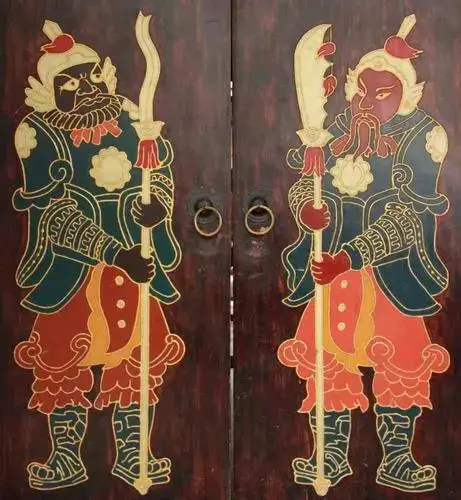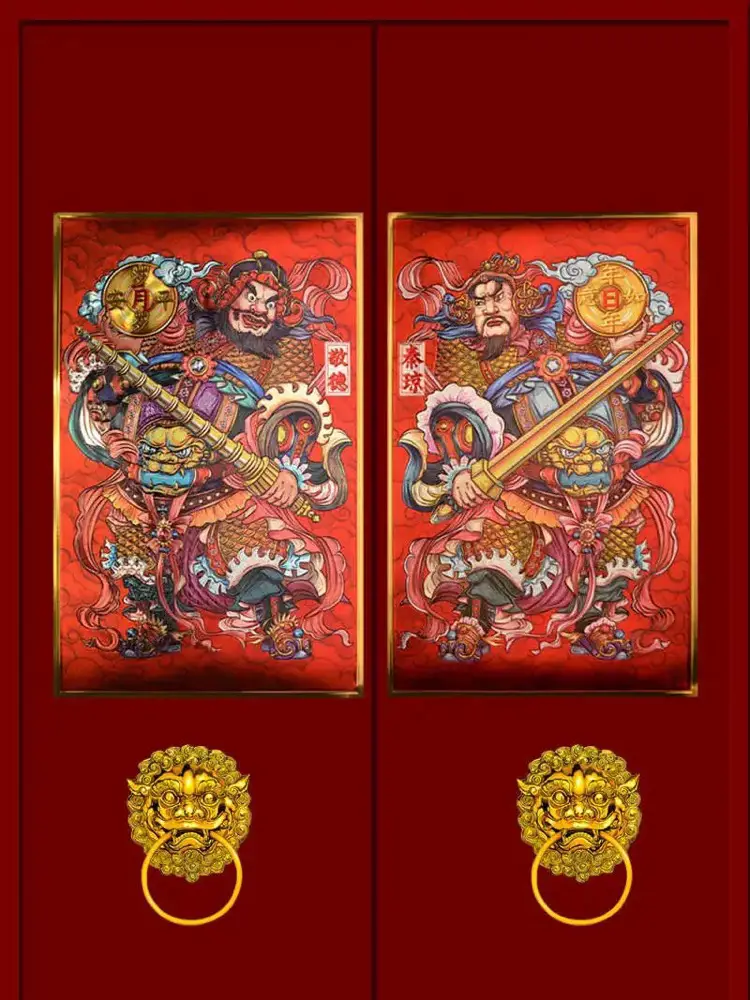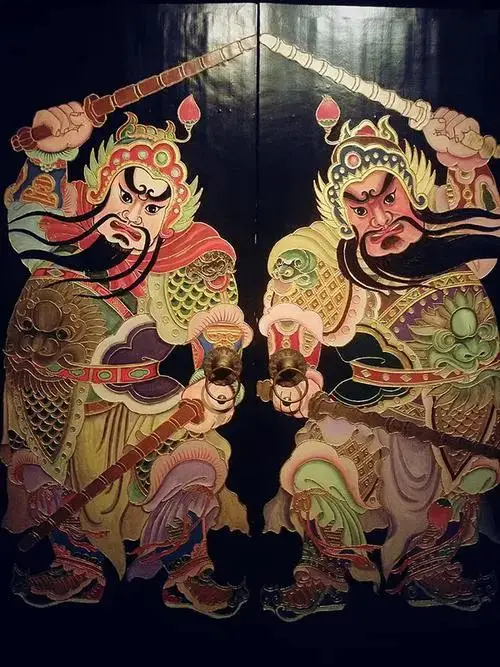The gates, doors, and thresholds of Chinese households have had special spiritual, cultural, and ritual attention since ancient times. For doors, the Chinese people had gods to whom they offered sacrifices and worshipped them. These gods were, and still are, highly respected and appreciated among the Chinese. If this is the first time you hear about Chinese door gods, this post will enlighten you about what and who these are and their history. So, to learn more about the Chinese door gods, keep reading.
What are door gods?

Chinese door gods, also known as the Men Shen, are figures in the Chinese culture who are worshipped and considered guardians of the entryways. They are believed to keep evil spirits away and protect the occupants of the building. Chinese door gods are typically in pairs, facing each other.
The Chinese door gods exist in two kinds; Literary door gods and Martial door gods. The Literary door gods, a.k.a civil door gods or inner door gods, are typically historical scholars usually placed inside the household on room doors. Civil door gods are believed to make guests feel at peace and balance the household.
The Chinese Martial door gods are typically generals and great fighters dressed in battle armor painted on gates believed to protect the building’s occupants from evil spirits. These gods usually face the guest as they enter and are respected and worshipped for their bravery, strength, trustworthiness, majestic weaponry, and loyalty.
Door god history in China

The Chinese door god history is believed to have begun during the Tang Dynasty (618-907AD) when, according to historians and Chinese legends, sacrifices were made to door spirits. During this time, Emperor Taizong was having nightmares and ordered portraits of Yuchi Gong and Qin Shubao attached to his doors to protect him. These gods became famous from this period to date for their divine protection.
Years later, other gods were assigned rear doors and others temple doors. The Men Shen custom spread rapidly throughout China over the years, and today, during the New Year commemoration, the images of these gods are refurbished.
Who is the Chinese door god?

There are numerous Chinese door gods, both real and mythological; all believed to ward off evil spirits and welcome good fortune. These gods were worshipped during different times in ancient China. Some of the most popular Chinese door gods were; “Shen Tu and Yu Lu,” “Guan U and Guan Sheng,” “Weichi Gong and Qin Qiong,” and “Zhong Kui,” who were all Martial door gods. Some of the most famous Literary Chinese door gods included “Don Yujun” and “Fu, Lu, and Shou.”
Other Chinese door gods were; “Wei Zheng and Xu Maogong,” who were early Tang officials, “Mu Guiying and Qin Liangyu,” who were generals under Ming; and “Shenshu,” the earliest recognized god.
Conclusion
Chinese door gods were believed to protect the occupants of a household and were highly respected and honored during ancient Chinese times. Today, these gods are still honored and are typically printed and pasted on doors or sculpted into statues and placed on either side of an entrance. Door gods are still a crucial part of modern Chinese custom.
Ni Hao Yelang,
it is a very interesting article about the chinese door gods. I lived myself in China for several years and were lucky to get in the posession of a pair of real terracotta or even ceramic ( with glaze ) door gods. I got them in Wuhan back the days..but not from a market but I found them in an old lane-hopuse (chinese and not french style) 600 m2 with inner free garden. And those gods protected the house. LAter I was able to purchase them from the owner.
Now I like to understand if they are real and from what time? I did quite an extensive research and found out that they represent Qin Shu-bao and Yu-chi Gong form the Sui-Tang dynasty. But I assume they got produced maybe in Ming or Qing dynasty. ? Could we catch up?
Thx Brian
Can you send me photos